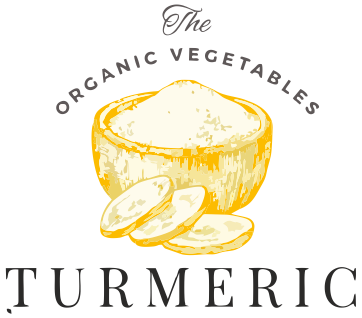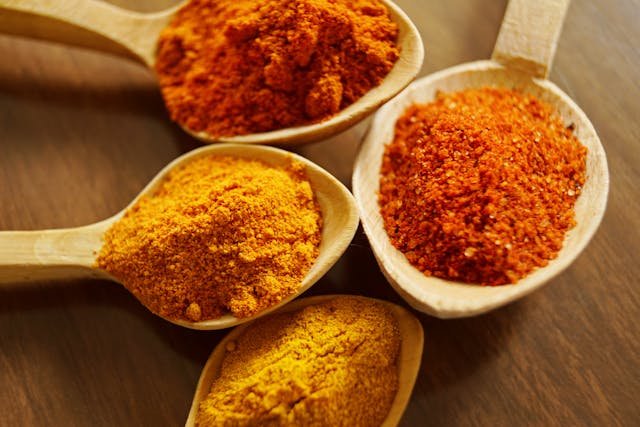Turmeric, a golden-yellow spice often found in curries and traditional medicines, has gained significant attention for its numerous health benefits. Derived from the root of the Curcuma longa plant, turmeric is lauded for its potent bioactive compound, curcumin. In this comprehensive guide, we delve into the scientific evidence, health benefits, and practical uses of turmeric, aiming to provide a detailed resource that stands out in the crowded landscape of health information.
Understanding Turmeric and Curcumin
What is Turmeric?
Turmeric is a perennial plant belonging to the ginger family. Its rhizomes are harvested, boiled, and dried to produce the vibrant yellow powder commonly used in culinary and medicinal applications. The active component, curcumin, constitutes approximately 3-5% of turmeric and is responsible for most of its health-promoting properties.
Health Benefits of Turmeric
Anti-Inflammatory Properties
Chronic inflammation is a root cause of many modern diseases, including heart disease, cancer, and neurodegenerative conditions. Curcumin is a potent anti-inflammatory agent, capable of inhibiting molecules that play a significant role in inflammation.
Antioxidant Activity
Curcumin is a powerful antioxidant that neutralizes free radicals and boosts the body’s own antioxidant enzymes. This dual action helps in reducing oxidative stress, a major contributor to aging and various diseases.
Improved Brain Function and Mental Health
Curcumin enhances brain-derived neurotrophic factor (BDNF), which supports neuron growth and function. Higher BDNF levels are associated with improved memory and a lower risk of brain diseases. Curcumin also shows promise in alleviating symptoms of depression and anxiety by increasing serotonin and dopamine levels.
Cardiovascular Benefits
Curcumin improves endothelial function, which is crucial for heart health. It also reduces inflammation and oxidation, both key factors in heart disease. Some studies suggest curcumin is as effective as exercise in improving endothelial function.
Cancer Prevention and Treatment
Research indicates that curcumin can influence cancer growth and development. It reduces angiogenesis (growth of new blood vessels in tumors), metastasis (spread of cancer), and contributes to the apoptosis (death) of cancerous cells.
Practical Uses of Turmeric
Culinary Applications
Turmeric can be used in a variety of dishes, from curries to smoothies. Its mild, earthy flavor complements both savory and sweet recipes. Adding black pepper enhances the absorption of curcumin, making your meals not only delicious but also more healthful.
Turmeric Tea and Golden Milk
Turmeric tea, or golden milk, is a popular way to enjoy this spice. Mix turmeric with warm milk, honey, and a pinch of black pepper. This soothing beverage is excellent for relaxation and health.
Supplements
For those who may not consume enough turmeric through diet alone, supplements are a convenient alternative. Look for high-quality turmeric supplements with added piperine for better absorption.
Scientific Evidence Supporting Turmeric
Clinical Studies and Research
Anti-Inflammatory and Antioxidant Effects
Multiple studies have demonstrated curcumin’s ability to reduce inflammation markers and increase antioxidant capacity. A study published in the journal Oncogene found that curcumin is more effective than aspirin and ibuprofen in reducing inflammation.
Neuroprotective Benefits
Research in the Annals of Indian Academy of Neurology suggests curcumin’s potential in treating Alzheimer’s disease by crossing the blood-brain barrier and reducing amyloid plaques.
Cardiovascular Health
A study in the American Journal of Cardiology showed that curcumin supplementation reduced the risk of heart attacks in bypass patients by 65%.
Potential Side Effects and Precautions
Digestive Issues
High doses of turmeric can cause digestive discomfort, including nausea and diarrhea. It’s advisable to start with small amounts and gradually increase.
Blood Thinning
Turmeric’s blood-thinning properties can interact with anticoagulant medications. Consult a healthcare provider if you are taking blood thinners or have a bleeding disorder.
Gallbladder Problems
Individuals with gallstones or bile duct obstruction should avoid turmeric, as it can exacerbate these conditions.

